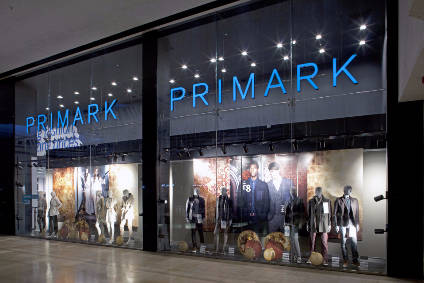
Primark is to pay its suppliers in full for all outstanding finished goods and to utilise or pay for any finished fabric liabilities incurred before it closed all its stores in mid-March amid the Covid-19 pandemic.
The retail group, owned by Associated British Foods (ABF), has no online operation and was widely criticised for cancelling all orders with its suppliers when its stores closed due to nationwide lockdowns.
In subsequent steps it set up a fund to cover the wages component of orders that it cancelled in Bangladesh, Cambodia, India, Myanmar, Pakistan, Sri Lanka and Vietnam. It then said it would pay all product that was both in production and finished and planned for handover by 17 April.
The retailer today (31 July) said the latest move “ensures that our suppliers will be paid for all garments both finished and in production as well as any fabric costs incurred for Primark prior to the stores closing.”
Primark will work through the details with suppliers on a one-to-one basis over the coming weeks.
“Covid-19 has had a devastating impact on our whole industry, not least our suppliers. At Primark, we will have lost some GBP2bn in sales this financial year and we had an GBP800m net cash outflow while the majority of our stores were closed,” says Primark CEO Paul Marchant.

US Tariffs are shifting - will you react or anticipate?
Don’t let policy changes catch you off guard. Stay proactive with real-time data and expert analysis.
By GlobalData“In March, when we had no visibility of how long stores would be closed and already with some GBP1.5bn of stock in stores, depots and in transit, we had to take a number of actions quickly to ensure we were able to withstand the crisis. This included cancelling orders, which was one of the toughest decisions we have ever had to take.”
He adds as the retailer began to mitigate costs and could see a reopening timetable, it prioritised more funds to support the supply chain, including establishing a wages fund and committing to taking an additional GBP370m of orders in April. Now that it is trading once again, Primark has also been able to place orders worth GBP1.2bn with its suppliers.
“We know our actions have been hard for our suppliers, including carrying the costs of these outstanding liabilities. This commitment ensures that our suppliers will have been paid for all in-production and finished garments and fabric costs incurred for Primark, and now that we are open and trading again we are able to place new orders.
“The reality is that we need a healthy, thriving retail environment to underpin a healthy, thriving garment supply chain. This in turn will protect the jobs of the millions who work across our industry.”
Earlier this month, Primark said it was placing GBP1bn worth of orders for the autumn/winter season after reporting an “encouraging” start to post-lockdown trading.
The retailer rolled out a nationwide clothing, textiles and footwear recycling scheme earlier this week in a bid to divert more from landfill.




